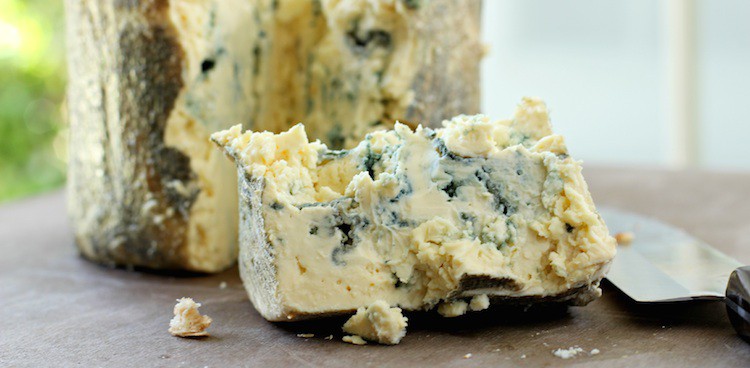
While many blue cheeses use molds that are lab grown, certain other varieties of blue-veined cheese use molds that have been harvested from bread, most notably French Roquefort. Such cheeses have been said to contain trace amounts of gluten. In an effort to evaluate this claim, the Canadian Celiac Association has conducted scientific tests on Roquefort cheese (and others) as well as directly on bread-harvested Penicillium roqueforti mold. They determined that the end products are, in fact, gluten-free. The Gluten Intolerance Group of America similarly lists blue cheese alongside other cheese as being safe in a gluten-free diet. So, my advice would be to go ahead and go for the blues.
Processed cheese, on the other hand, may contain any number of flavor or texture additives that can be gluten-based. While some may be fine, I suggest checking the label closely for any additives or avoiding processed cheese altogether.




